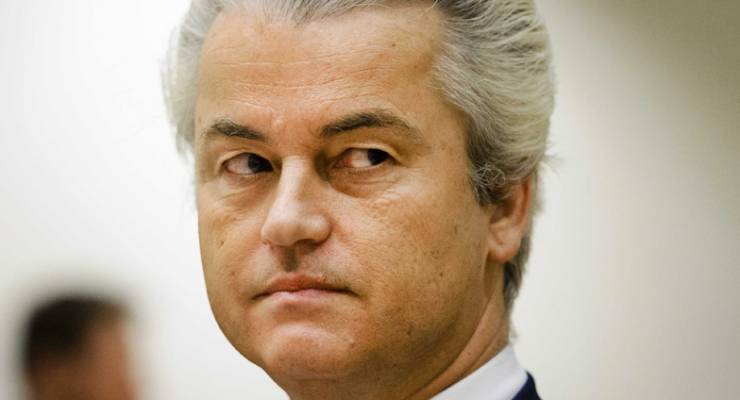
The Netherlands goes to the polls tomorrow in what is likely to establish a new model for European politics as it increasingly confronts the rise of the far right. As far-right parties appeal to larger blocs of votes, political competition is becoming one of centrist parties banding together to block political extremism.
Godwin’s law applies here, with European politicians recognising the very real challenge that the far right poses to the liberal democratic order. Coalitions that involve the far right, as in the case of the Netherlands’ Party for Freedom (PVV), have, in theory, the potential to subvert the parliamentary process.
The Netherlands elections will determine whether the country has a nationalist, isolationist and racist far-right coalition government that intends to restrict Islam and to leave the European Union. Polling ahead of the elections indicated that the PVV, led by the hardline Geert Wilders, will win the single largest bloc of votes.
With 12 parties contesting the elections, the PVV is expected to receive close to 30% of the total vote, or 29 of 76 seats needed to form government in the 150-seat Dutch lower house. But, reflecting a liberal democratic abhorrence of joining with far-right parties, the PVV will struggle to form a coalition sufficient to form the required majority.
The PVV’s otherwise most likely coalition partner, current Prime Minister Mark Rutte’s centre-right People’s Party for Freedom and Democracy (VVD), has ruled out forming a coalition with PVV. The VVD is expected to win around 25 seats in the Dutch parliament, making it the second most popular party and that most likely to form the next governing coalition.
Such a “purple” (blue and red) coalition, however, is likely to be unstable, given the underlying ideological differences between centre-right and centre-left parties. The existing coalition between the Labor Party (PvdA) and the VVD is already on the rocks following inter-party disputes and a collapse in the PvdA vote to around 12%.
The VVD’s attempts to form an anti-PVV coalition — potentially of up to five or more parties — is expected to be a drawn-out process. Assuming a government can be formed, it will likely result in an unstable government comprised of a number of small and sometimes fractious parties. Fresh elections soon remain a distinct possibility.
As with far-right parties elsewhere, the PVV is successfully appealing to the disenfranchised and fearful (the “precariat”) looking for a rejectionist and “anti-political” message. However, while characterising itself as rejecting both conventional politics and “left” and “right” ideologies, as with many other far-right parties, the PVV is profoundly political and retains strong links to sections of the economic and political elite.
While much of the far-right movement in Europe has received a boost in the wake of the global financial crisis, the Netherlands’ economy is now stable with low inflation, a current account surplus and declining unemployment. There is, however, more insecure employment and under-employment. This is also driving far-right populism elsewhere, including in the UK, France and the US.
A notable feature across these and other countries (including Australia) is a growing gap in the education-un/employment nexus. The least educated and, hence, often least conventionally politically engaged are also the most likely to support far-right parties such as the PVV.
As with other far-right parties, the PVV has campaigned strongly against Islam, saying it will end Muslim migration, close mosques and “de-Islamify” the country. This resonates with many Dutch voters, around two-thirds of whom have said in surveys that Islam is incompatible with modern European life, that they felt threatened and half of whom feared an Islamist terrorist attack.
Most of the Netherlands’ Muslim immigrants — about 4% of the population — came from Turkey or Morocco as labourers, with many fewer arriving as refugees.
Wilders and the PVV’s other key policy, again in keeping with other far-right parties, is to remove the Netherlands from free-trade agreements, in this case the European Union. This policy is despite the Netherlands being heavily reliant upon external trade to support its relatively robust economy.
In the face of the far-right challenge, the more tolerant, pro-free or liberalised trade parties of the Netherlands will, as they appear to be doing in France, band together. Whether they can present a credible longer term alternative to the far right, emboldened by conventional politics’ internal disputes and a global move towards employment insecurity, is less certain.
*Damien Kingsbury is Deakin University’s Professor of International Politics








” … the PVV is expected to receive close to 30% of the total vote….”
? – The latest poll, according to the UK’s Daily Express of 13 March, shows PVV share at an estimated 13%, below the VVD at 16%.
Let’s just hope that “many fewer”, transmogrifies to “far fewer” and the revolt of the pedants is crushed. 🙂